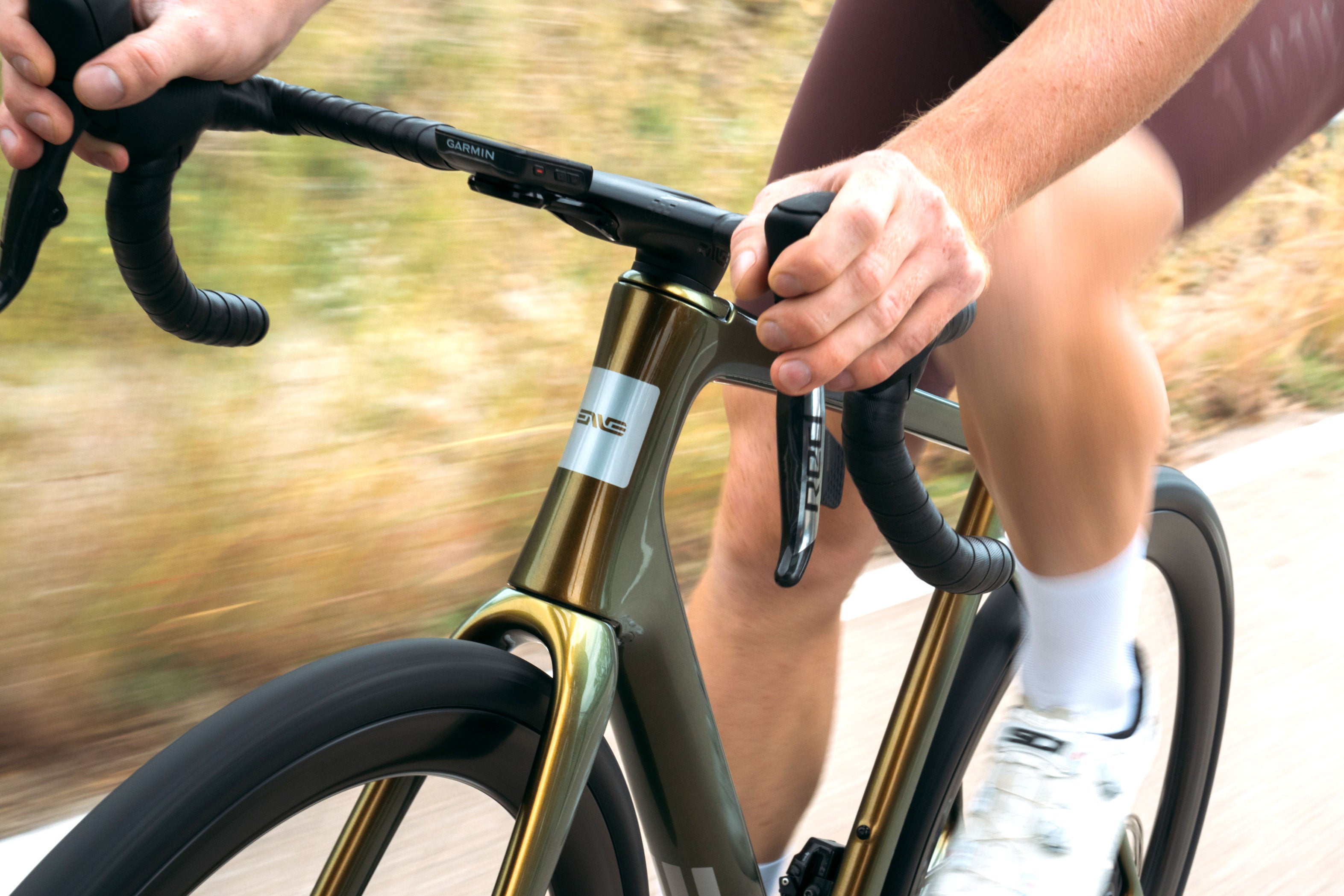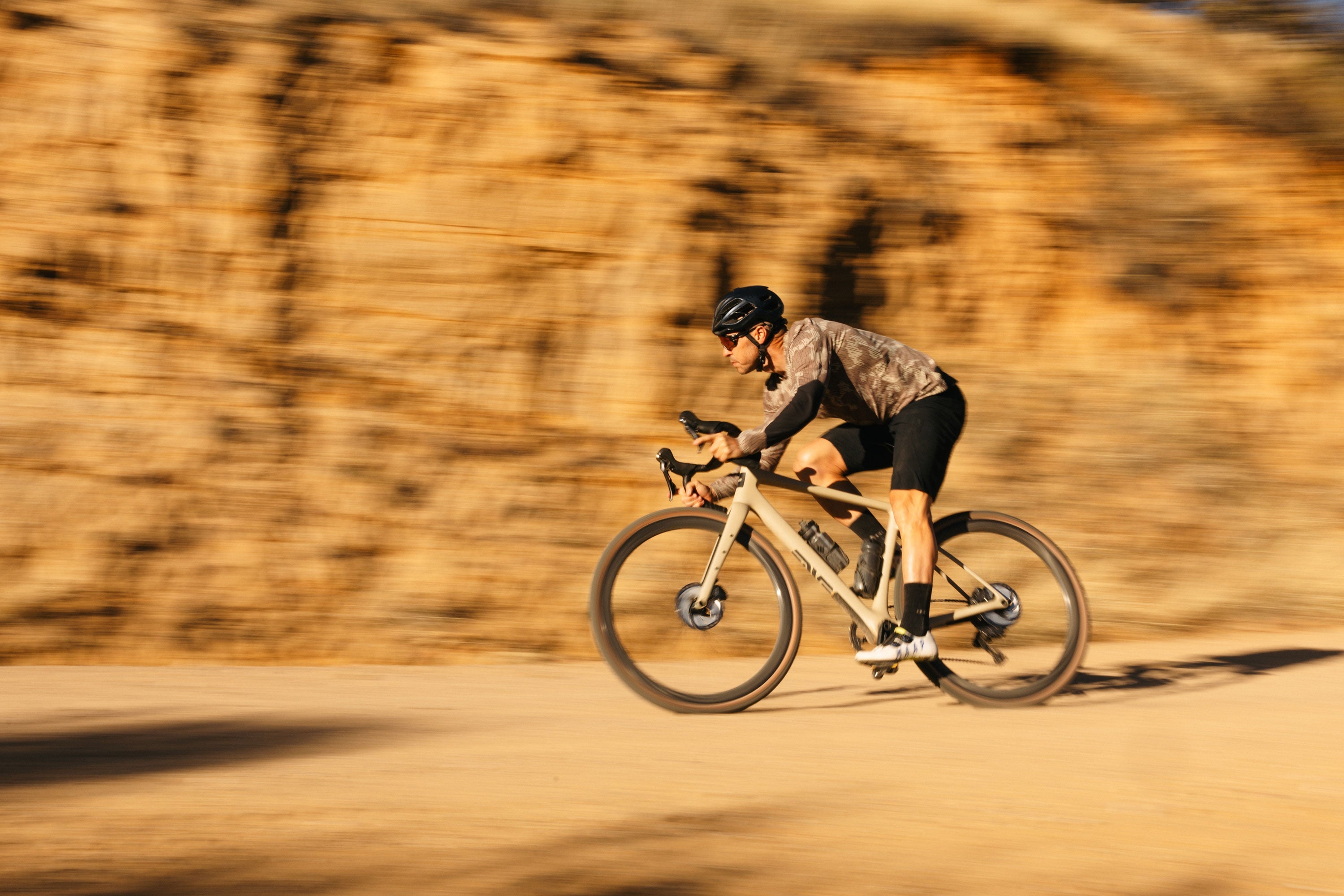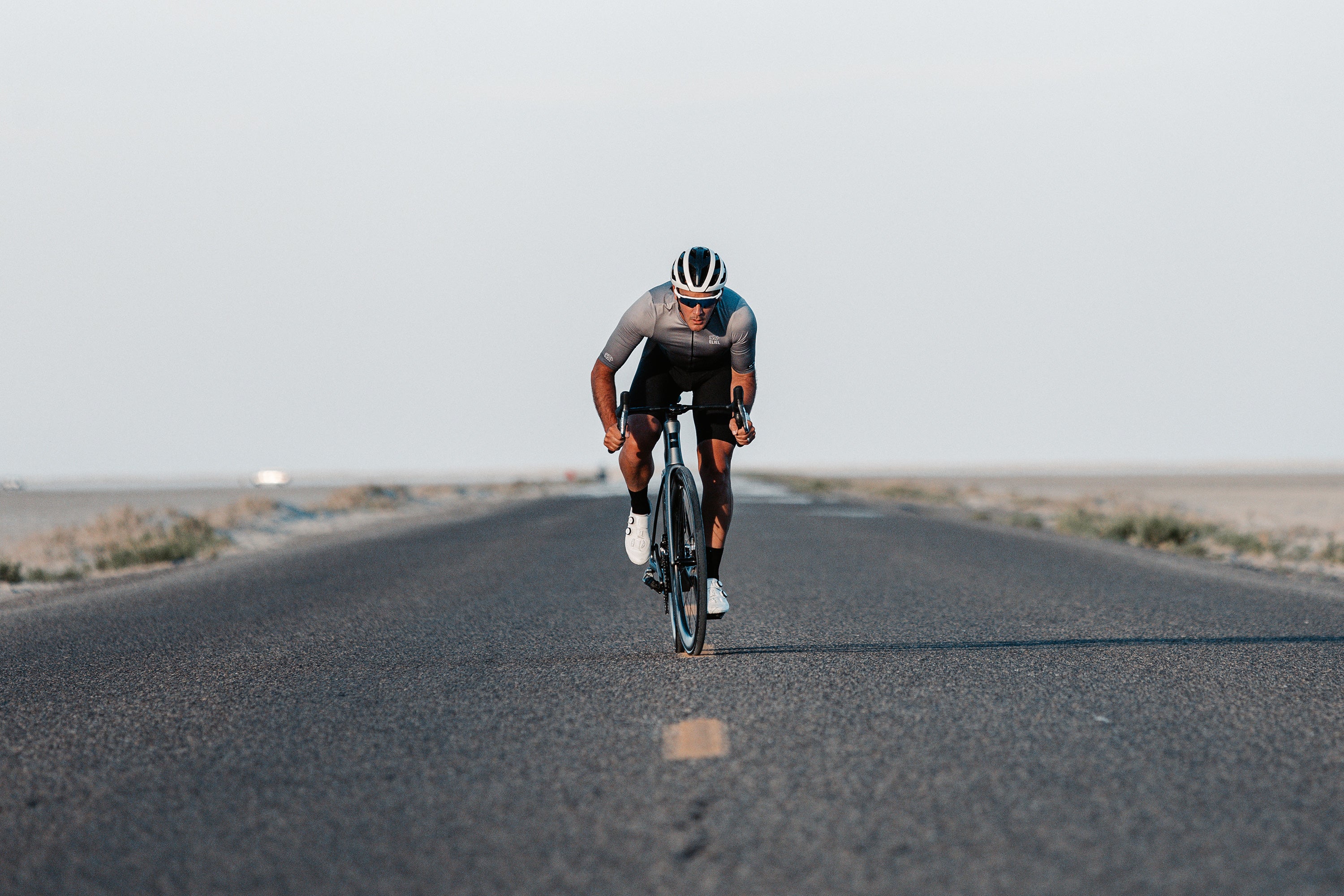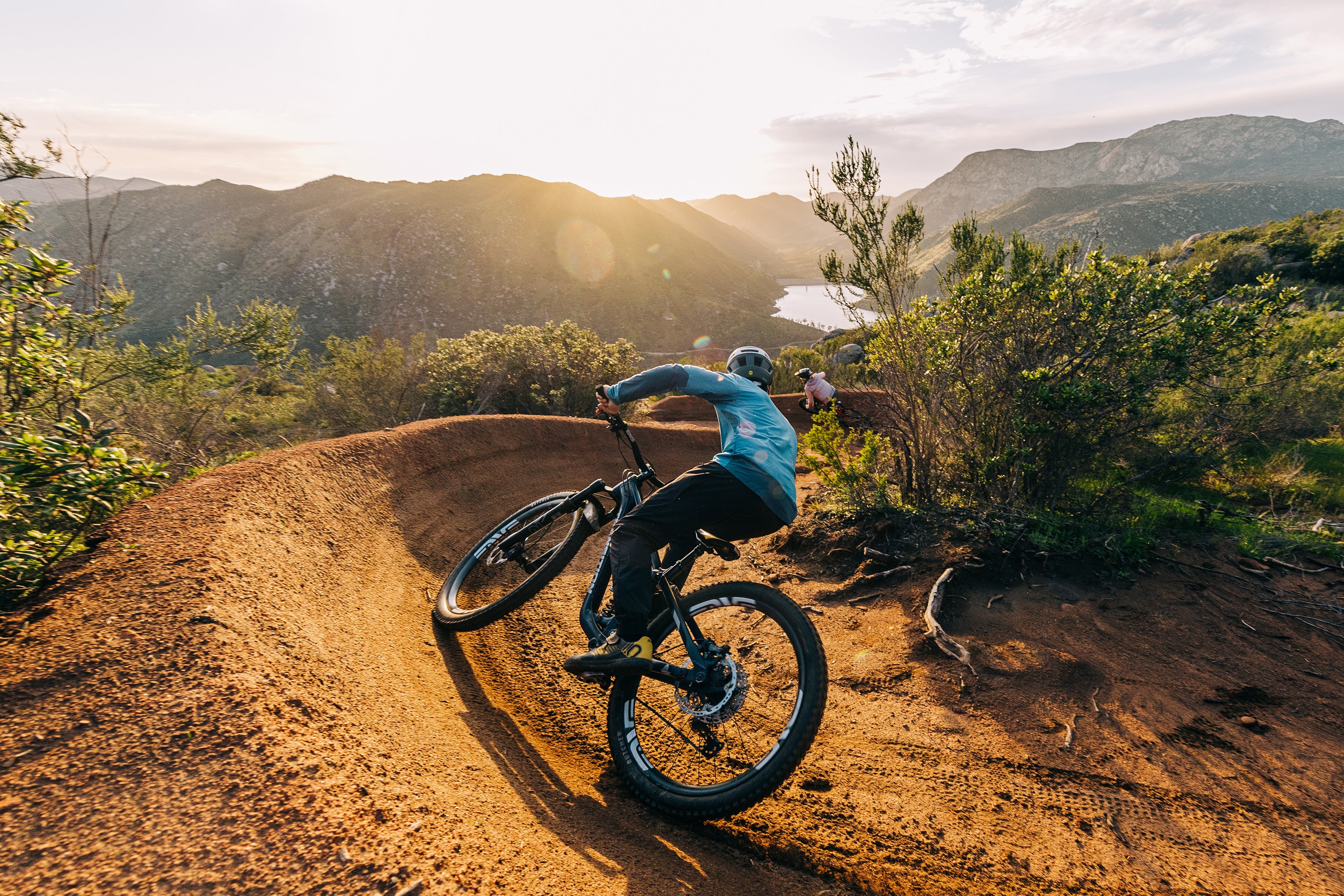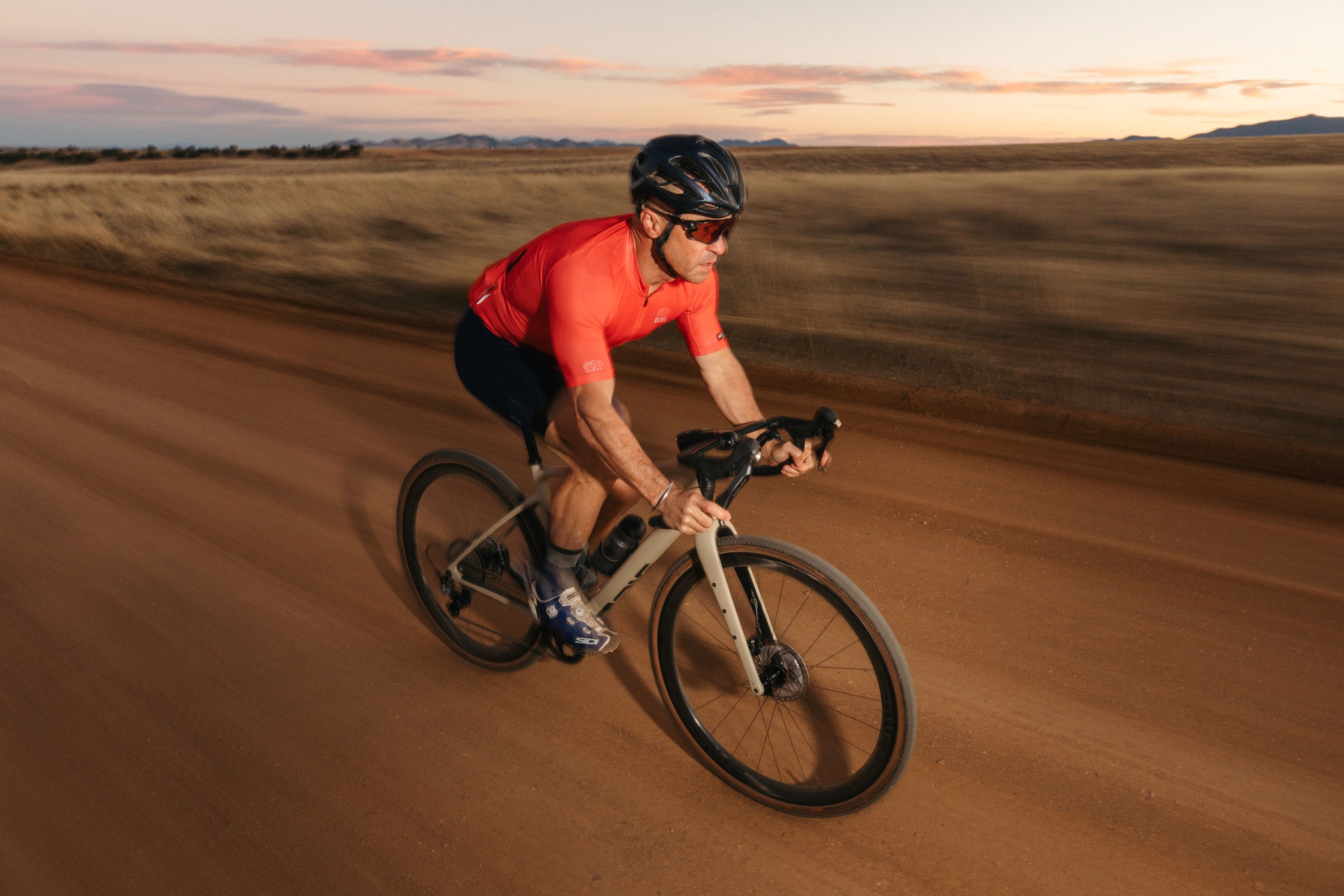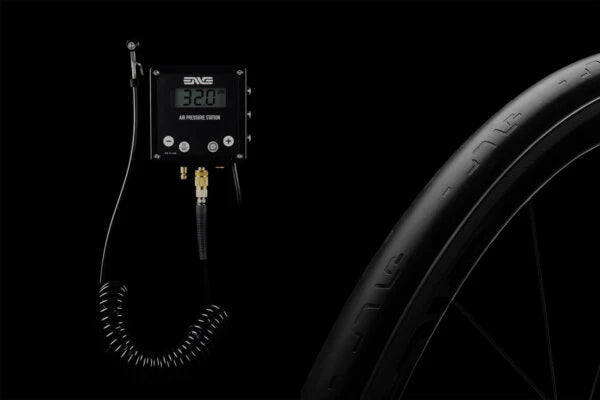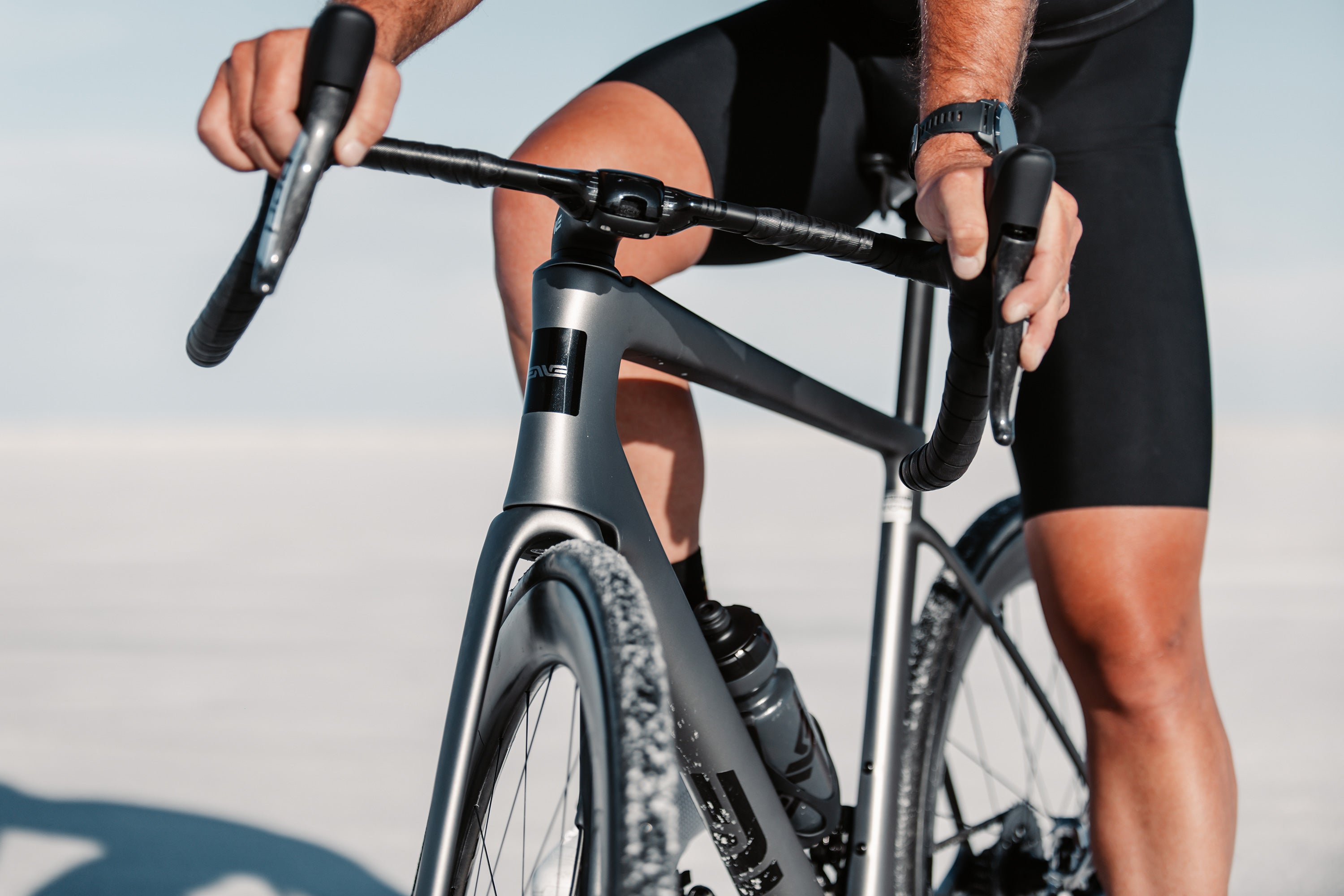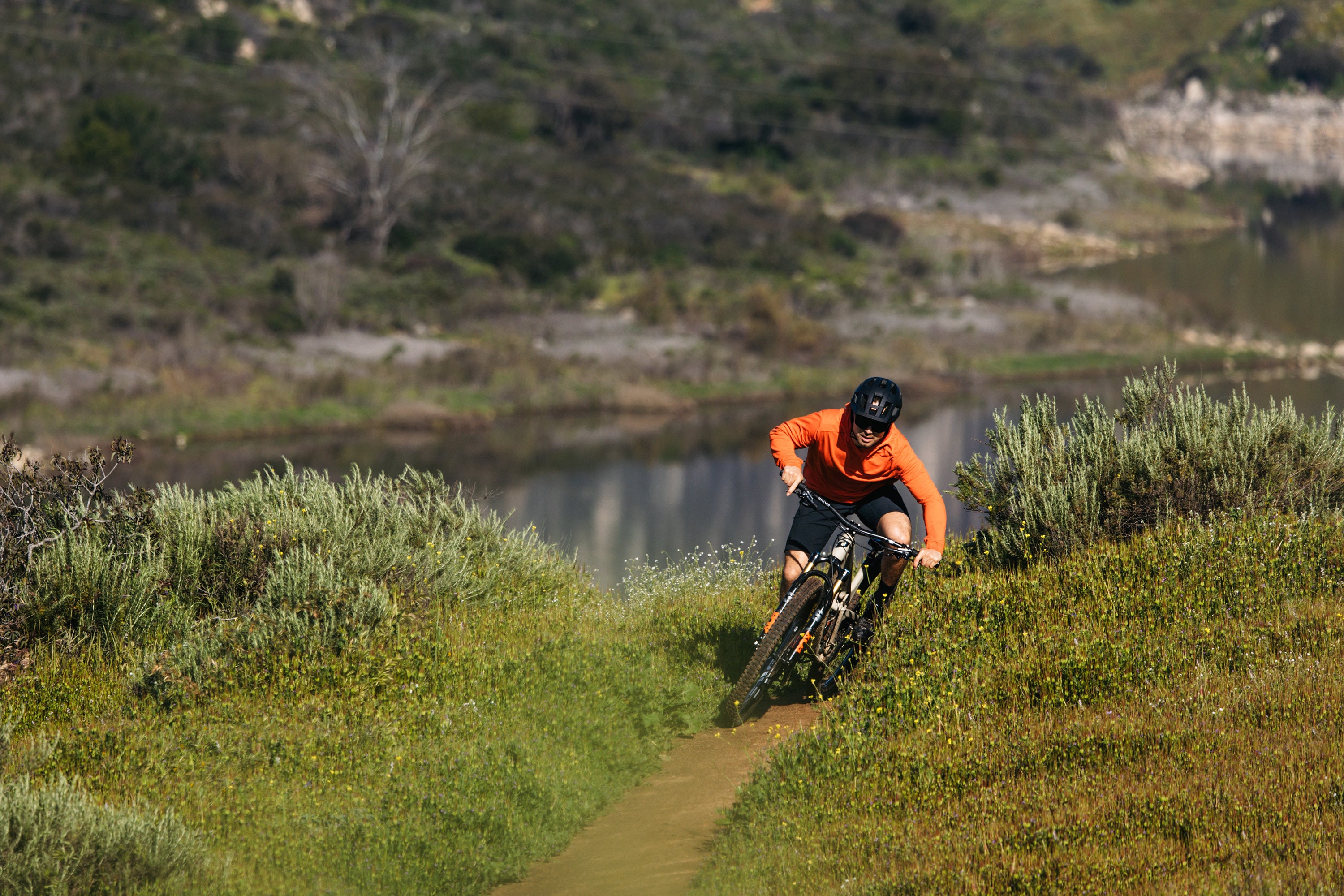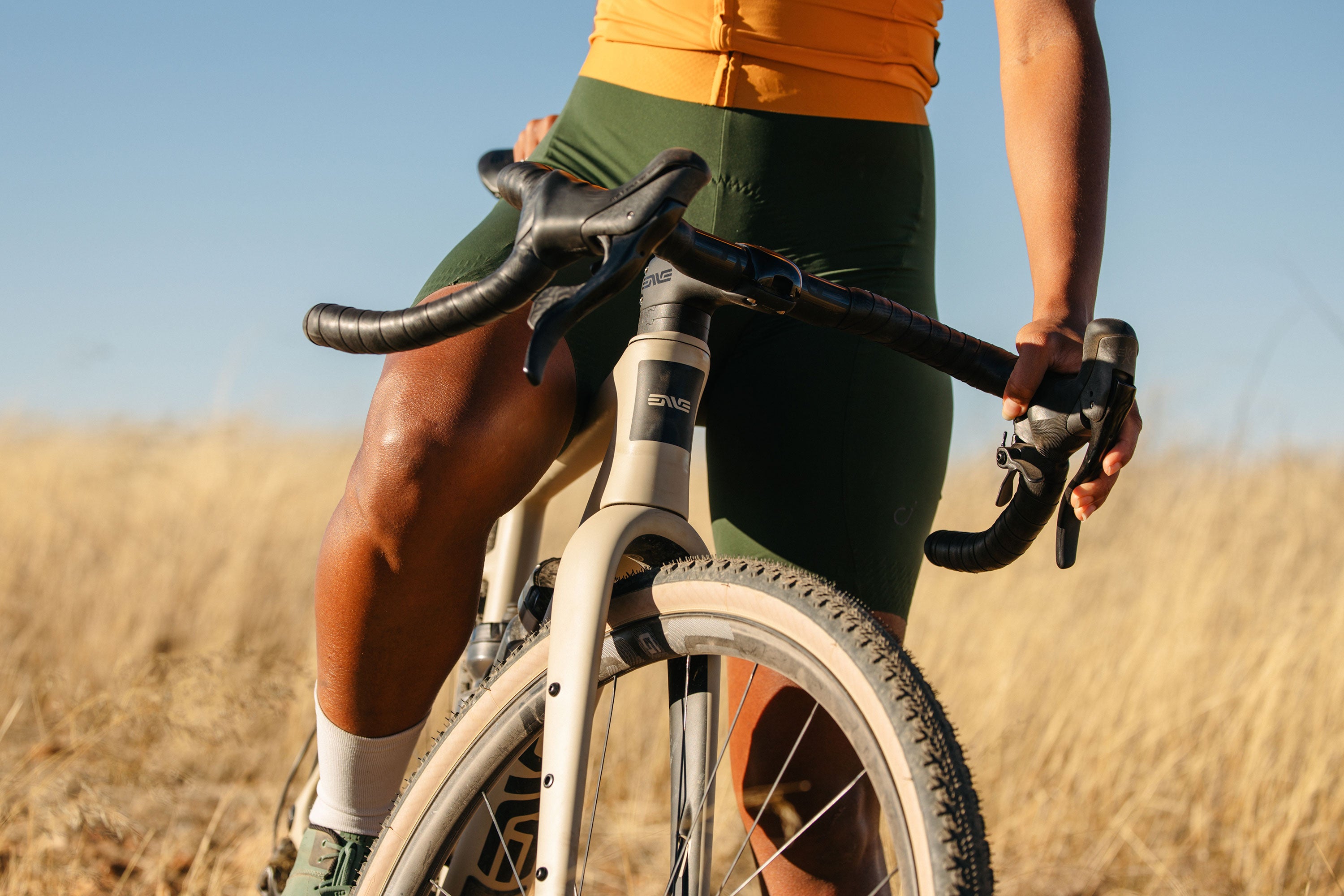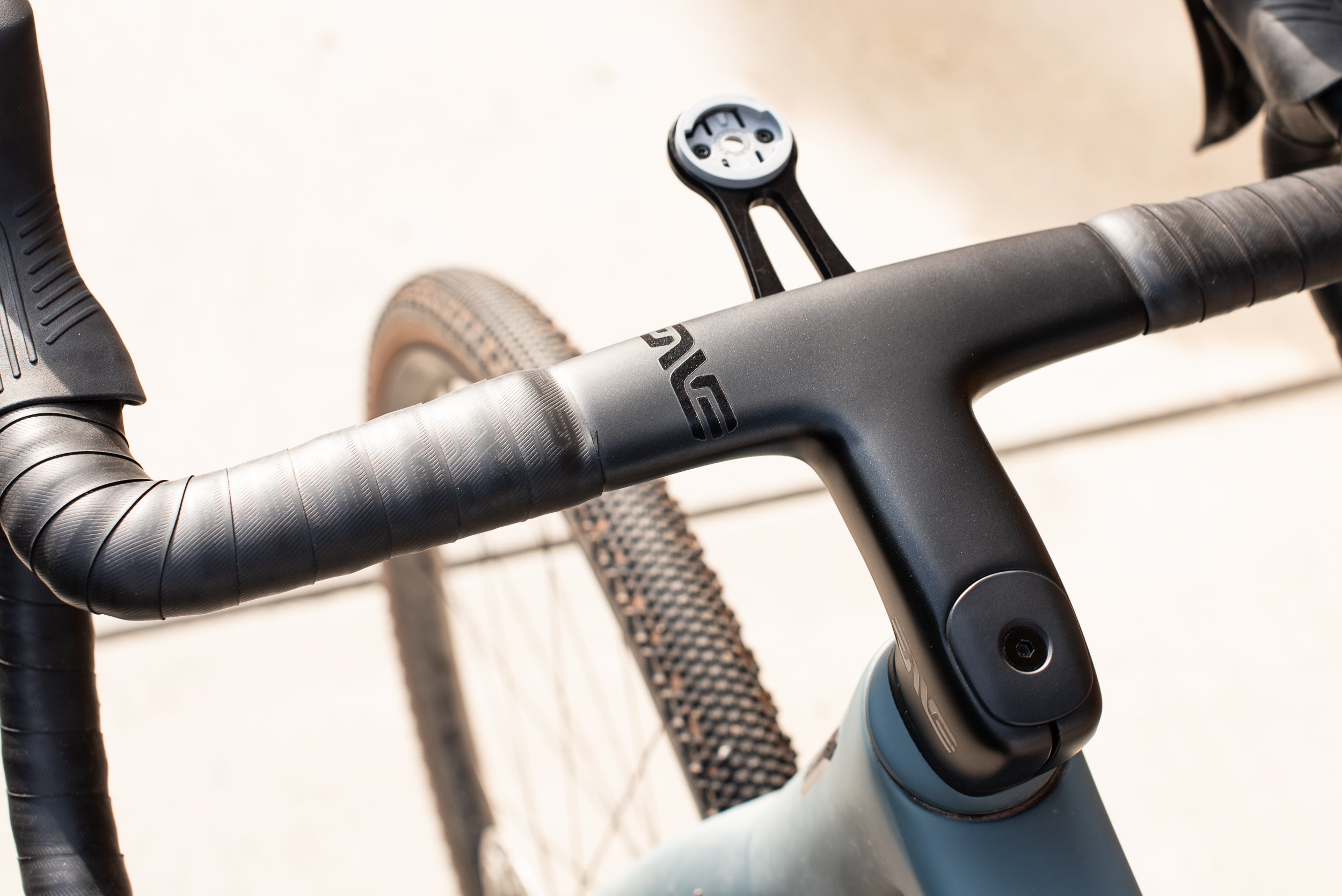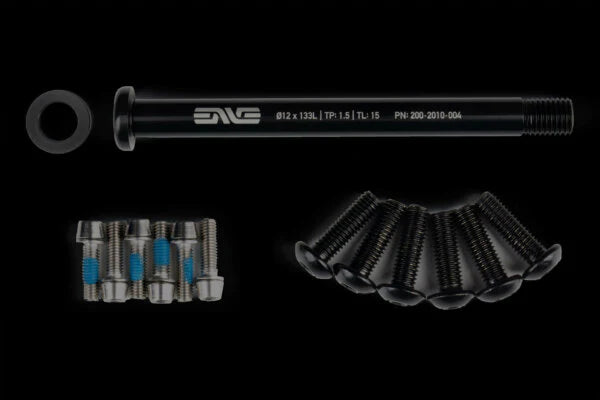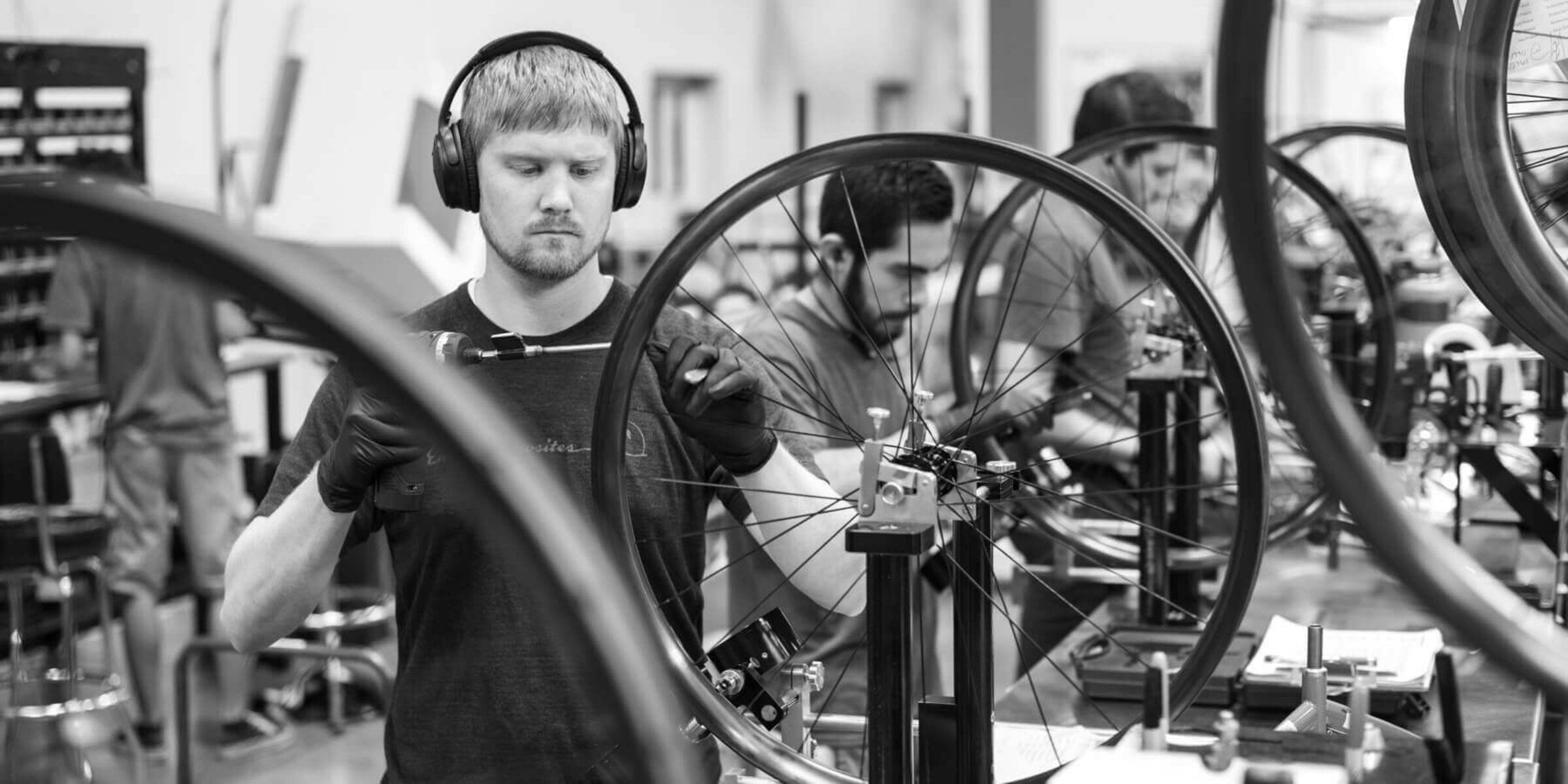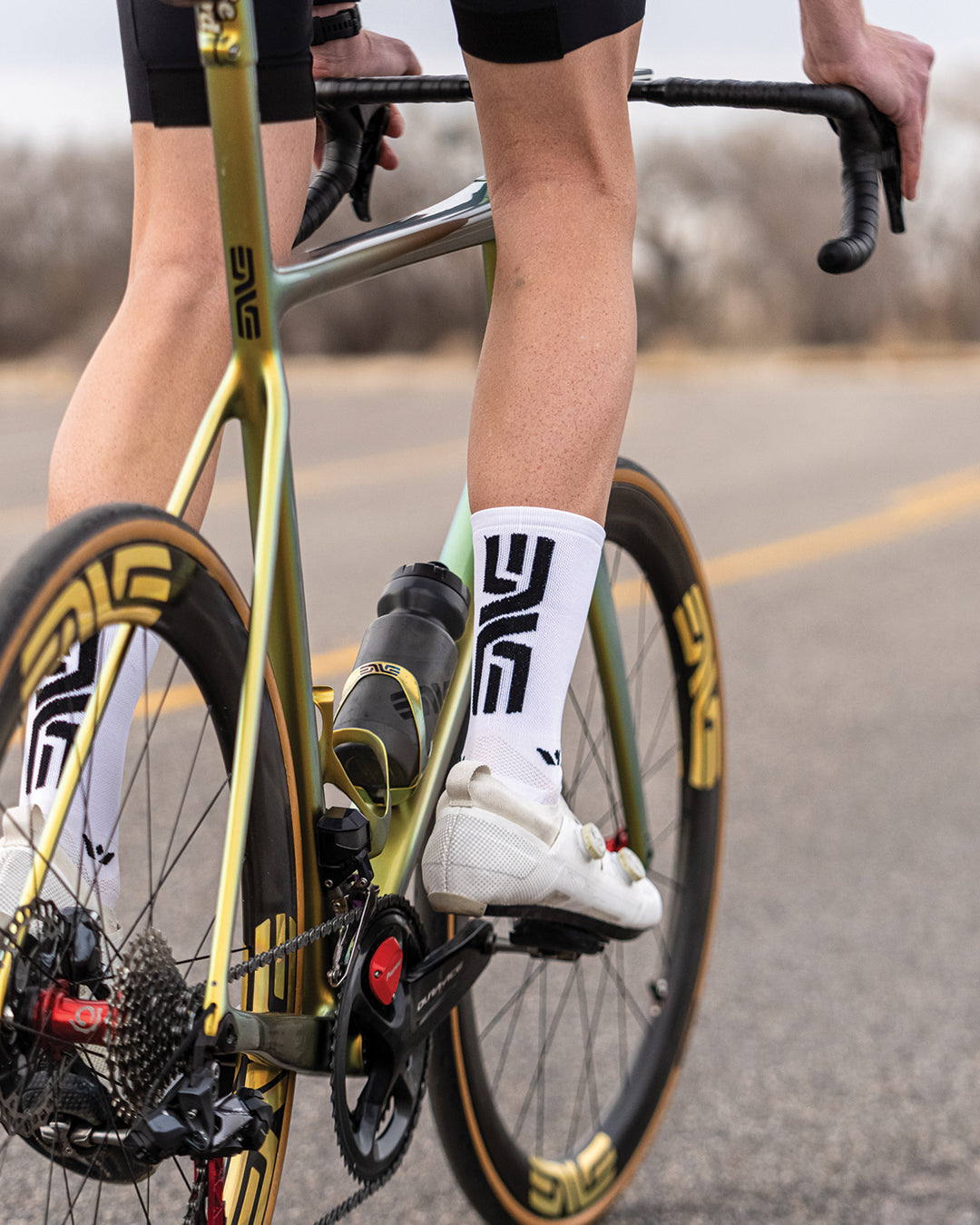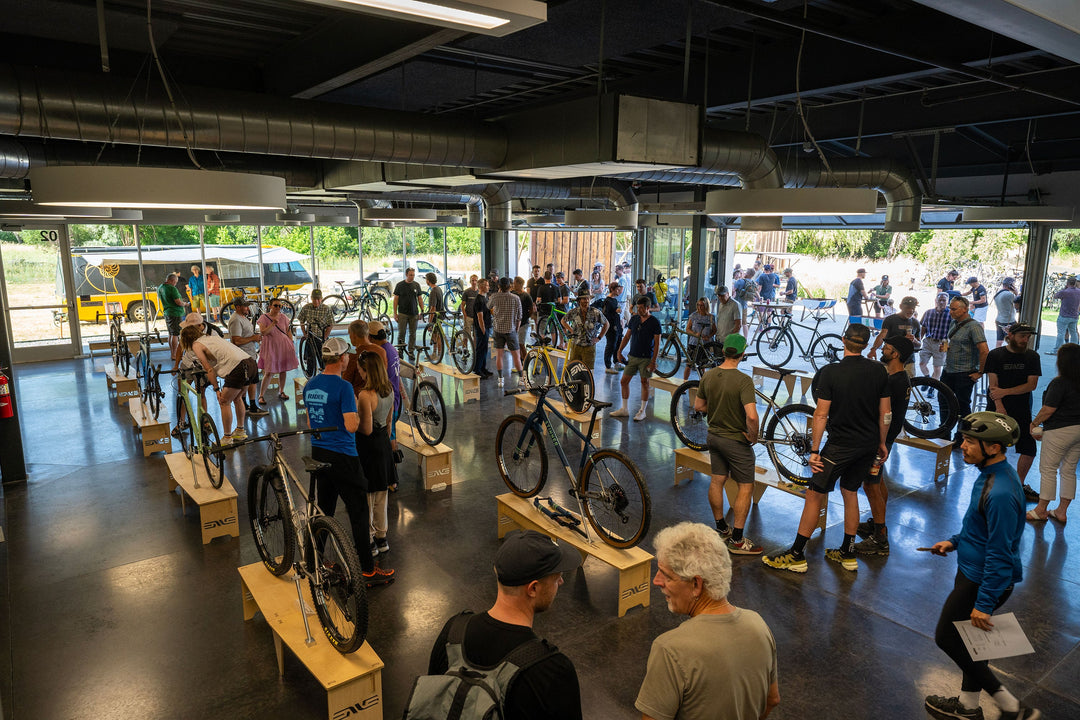Get to Know the DH World Champion, Asa Vermette
Downhill World Champion, Downhill National Champion, and Enduro National Champion. Asa Vermette is only 17 years old but has already accomplished what many riders hope to do throughout their entire career. Who is Asa, and how has he gotten to where he is today?

"It didn’t fully sink in until someone said, 'Congrats, you’re the best in the world at what you love to do.'"
We first met Asa at a local enduro race in McCall, Idaho, in 2021. We had set up a prize: a wheelset for the fastest non-pro on one of the four stages. Asa chose to step down from the pro/open category to sport for a chance at winning the wheels. The event organizers noted that despite being only 13, Asa was likely to win and set the fastest time of the day. And win he did. Receiving the wheels marked the beginning of a sponsorship program that has continued up to the Frameworks Racing team sponsorship today.
We held a test camp with the Frameworks team at the start of the season where we experienced Asa’s enthusiasm for riding. It’s nearly impossible to get him off his bike. Frameworks team owner Neko Mullaly had to look him in the eye and tell him not to overdo it on his rest day, saying, “Only six laps today, and all flow trails.”
We wanted to get the full story on Asa, so we chatted with him to learn about his background and how his first year of Elite World Cup racing has been. So far, he’s won three World Cup stages, World Championships, and currently sits in second place overall.

Where did you grow up? What did you grow up doing?
I grew up in Durango, Colorado. It’s a small town but very much a biker town. Almost every car you pass has a bike rack on it. Nobody stays indoors; it's an outdoors kind of place year-round. It’s a super cool place to grow up.
I started riding motos with my dad when I was around four. We’d ride locally and then go to one of my favorite spots, Aztec, New Mexico. We’d begin with some track riding and then hit the trails in the backcountry.
I started playing soccer around age 5, but I got bored of it pretty quickly. Moto, and then biking when I was around age 7, was much more fun. I also loved to ski. My favorite winter routine was to ski in the morning and ride motos in the afternoon. Purgatory, our local mountain, has rad skiing and biking, so we can go year-round.


How did you get into racing? When did you realize you could go pretty fast?
I started riding mountain bikes around age 7 and loved it. At 14, I signed up for a local race at Purgatory. I did pretty well, so we looked for more races and found National Champs. I won that first time I entered, so I figured I should keep going, ha. Then we started doing the Trail Party races around the West. I believe we met you guys there; it was my 5th or 6th race.
I’d say the first moment I realized that I could go fast was at that first National Champs. I was on an enduro bike, and everyone else was on a DH bike. I snapped my chain during my run but just kept going to the bottom. I was surprised to win and was really stoked.
"I was looking for more races to do, and heard about National Champs. So at 14, I signed up. I won that first time I entered, so I figured I should keep going, ha."

What was it like signing the deal to join a true World Cup downhill team?
Joining Frameworks this year was amazing. I had a couple of other offers from bigger brands, but I worried I’d get lost in a huge team. All the guys on our team are friends, and we just hang out. On a big team, you might not be as close with everyone. Our team feels like a group of friends going around to all the races rather than a professional team.
It’s been great not working on my own bikes. I can hand them over to the mechanics and relax in the pits while they set everything up. If I break anything, we have a drawer with eight extras to replace it immediately. It’s not like being a privateer junior in the US, that’s for sure.
Now you’re nearing the end of your first year on the World Cup circuit. How does this year compare to your previous racing experiences?
It’s been incredible. I’ve always watched the races, so being in them has been surreal. I knew the tracks from watching GoPro videos of the top guys, so hopping on the bike on any of them has been really natural. When we did a track walk at Fort William, a lot of the riders were taking their time to get familiar with the track. But when I got on, I already knew where all the rocks were from the videos. Riding them myself and winning a few races this year has been amazing.

What’s been the hardest challenge stepping up to this level?
Before the World Cup, I didn’t have to push myself too hard to do well in smaller races. My first World Cup races went perfectly, but by my third race, I did too many laps in practice and was tired. Then I was sick the night before finals and was exhausted for my race run. The same thing happened in Loudenvielle. I got sick and was throwing up all night. I gave it my all but wasn’t fully there physically. At this level, I need to be more prepared and manage my energy better. That’s what I’m focusing on for next year.
Traveling is also hard. As Americans, it’s tough to plan exactly when to stay in Europe between races and when to return home. Touring Europe while racing is amazing, but long flights next to coughing passengers is stressful, especially when I need to stay healthy for races. Overall though, it’s a new experience, and it’s been amazing.
How have your parents been handling you being on the big stage as a teenager?
[From Asa’s Dad, Josh]
It’s been amazing. We’ve talked about it over the years, and now it’s finally happening. It’s so rad to see him at this level.
As a kid, he just loved riding so much. At first, he was following me, but then I was trying to keep up with him. He’d do 20 laps a day before races to prepare. I remember we did eight or nine laps of the race course at Winter Park, and I had to insist on doing another trail to keep from going crazy, ha.

Asa, you won World Champs. How does it feel to wear the rainbow stripes?
It was always the dream. I imagined standing on the podium and putting on the jersey all the time. To actually do it was insane.
Fox made a kit with the stripes for me, and it was surreal to be part of that club. Wearing it is super cool. It didn’t fully sink in until someone said, “Congrats, you’re the best in the world at what you love to do.”

Favorite race of the year?
It was definitely World Champs. Not just because I won, but because the track conditions were perfect for me: moon dust. It felt just like home in Colorado, so I felt like I could ride it as aggressively as usual.
A close second was the first World Cup at Fort William. I’d been injured with a hip problem and hadn’t ridden my bike for weeks before the track walk. To practice a bit and then win the race was incredible. My mom was there, and celebrating with her was amazing. She’s been working as a travel nurse most of the year so hasn’t been able to make it to all the races, so having her there was awesome.

What do you think the UCI should change or improve?
As a junior, it sometimes feels like the UCI focuses more on the elite riders than us. At Les Gets, it was supposed to be rainy, and they canceled our race with very little warning. Instead, they held the elite race.
Additionally, elites often get better pit spaces, right next to the chairlift. At World Champs, we managed to sneak our 10’ x 10’ tent into the Fox tent by the chairlift, rather than being placed 3 miles away with some others. I won, and Angel [Suarez] came in 7th. We think it was the best result ever achieved from a tent that small!
How has the development of the bike been going? How involved are you?
Being on the Frameworks team, where we build our own bikes, has been fantastic. If I were on a big factory team, I don’t think I would have the opportunity to make major changes to the bike as a junior.
We spent a lot of time developing the frame at Rock Creek earlier in the year. We tested different frames, shocks, and other components. Neko is extremely knowledgeable, and I’ve really learned from him how to notice differences in setup. Being able to adjust the bike to suit my style of racing is a great part of this team. At one point, Angel wanted a different feel, so Neko grabbed a frame, drilled a hole for a new shock mount point, and handed it over. It was exactly what he wanted. It's pretty amazing to have that kind of quick prototyping!

Hardest moment of the year?
Crashing during my race run in Leogang. After the crash, I stopped because I thought I saw a red flag from a course marshal. It turned out there wasn’t one, so I wasted a lot of time for nothing. It was a valuable learning experience though. It’s good to learn these lessons early on in my first year.
Honestly, besides that, nothing else really comes to mind. I’m just riding my bike in different countries as a job. People ask, “How are you always so stoked?” and I reply, “I’m riding my bike in France; this is insane!”

Favorite European food so far?
In Val di Sole, the pizza was incredible. Neko also introduced me to the thin-sliced hams and prosciutto they have there. It’s some of the best meat I’ve ever had.
What do you miss most about home when you’re away?
I miss the sun because it’s been so rainy in Europe all summer. I also miss my dog.
I miss my parents too, though fortunately, my dad has been at almost all the races and has traveled with us almost the entire time. There was a three-week break when he went back home, but he’s been with us for the rest of the season.
Plans for next year and beyond?
This year, I got hurt a lot. I tweaked some things by attempting risky moves, like hitting a cool gap or a fun line that didn’t actually make me faster. I’m going to take this experience and aim to do even better next year.
This winter, I’m going to get huge in the gym!



